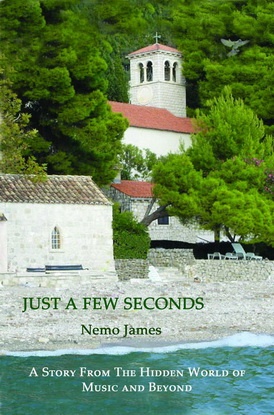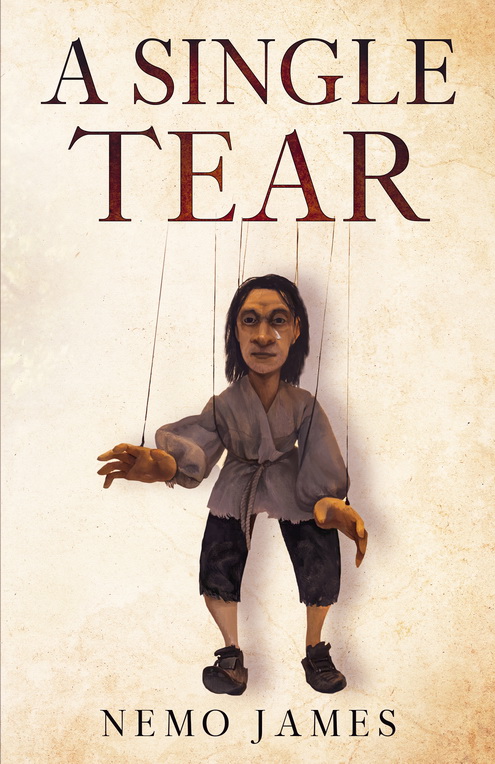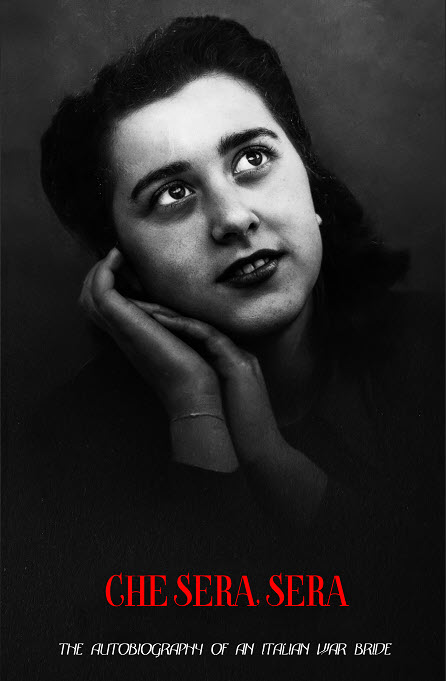The Man Behind The Name
I am often asked where I got the name Nemo James from, so here is the spooky story behind the name.
In 1991, I was starting to promote myself as a singer-songwriter rather than a session musician, so I knew I had to change my name to something more catchy. Although my songwriting was prolific, I couldn’t for the life of me think of a stage name. One day I was chatting with my father (who is not the most creative of men,) when he surprised me as parents often do.
“Why not use Nemo. That was your grandfather’s nickname.”
I loved the name and the idea of finally inheriting something from my grandfather, but I was still stuck for a surname. A few seconds later, the name James came into my head. I didn’t know anyone called James and hadn’t been watching a TV program about one, so it just came out of nowhere, but I knew instantly it was the name I wanted. The spooky bit came a couple of weeks later when my father said,
“Do you know your grandfather was one of eight children, and the eldest was called James … and he was a poet.”
If that wasn’t spooky enough, a few months later, someone pointed out what Nemo spelt backwards. After that, I wanted to know more about my grandfather as he died many years before I was born and was rarely talked about in my family. I started interrogating my father and aunt.
Grandfather Nemo (real name Herbert Edwin Newark) was born into a wealthy family, and his father owned a thriving bookbinding shop. He had a very strict upbringing, and every night when he was young, he was made to stand outside the dining room with his seven brothers and sisters and sing hymns while his parents ate their dinner. This was strange enough in itself but more so because his parents weren’t in the least bit religious. It was because of this authoritarian upbringing that my grandfather developed an intense dislike for authority and rejected convention of any kind.
All he ever asked for from life was to remain anonymous and play cards, and that is exactly what he did. Every afternoon he went to a whist drive and then straight onto a solo drive at night. An entrance fee was paid, and the winners took whatever was in the pot. With his desire to remain anonymous, he always gave his name as Nemo, and in the working-class environment of those places, no one would have known that Nemo was Latin for nobody. Every night he returned home, ate a raw onion and a piece of cheese and went to bed.
Nemo was a highly skilled bookbinder and inherited the bookbinding shop from his father, but he only ever did just enough to pay for his card playing. Even that became too much for him after a while, so slowly, he started selling the stock until he got to the point where even if someone gave him a book to repair, he was unable to do it because of a lack of materials. He gave very little to his wife to bring up their five children, so my father was brought up in a slum. Nemo didn’t drink, but he did chain smoke and developed the ability to open a new packet of cigarettes while they were still in his pocket, take out a cigarette and light it while no one was looking, so he didn’t have to offer them around. With all the stock gone and his shop closed, he spent the rest of his life living from the occasional win at a whist drive and waiting for small legacies from wealthy relatives. My grandmother got by with some help from her parents and a small income from renovating prams. You might wonder how Nemo was able to pay the household bills, and the answer to that is that he didn’t. His favourite saying when anyone from authority approached him was “lock me up”, and that is exactly what they did. Every couple of years, he would get a final demand for unpaid property tax, he refused to pay it, and they put him in prison for a few weeks. He referred to those periods as his visits to the “health farm” as he was unable to smoke, ate much better food than at home and still got to play cards all day. When he was released, his debt was written off. His only concession to responsibility was when things were desperate, he took a trip to the food bank. All he ever worried about in life was not having enough money to pay his entrance fee to a whist drive, but when that happened, his daughter Doris was happy to give it to him despite her having very little money herself.
He was a very attractive man, and there were always women chasing him, although he was never interested as it would have been far too much effort to respond. When he first met my grandmother, she was already engaged, but she left her fiancé to marry him and spent the rest of her life telling him what a big mistake she made. It was said that she didn’t particularly like him and only wanted him because all the other women wanted him.
He was infamous for his bad habits, although the only two I know of was spitting into the fire (which he frequently missed) and leaving his trouser fly open. It is not surprising that eventually, my grandmother kicked him out, so their son Cyril built him a makeshift, two-storey shed in the garden where he lived for years in the hope of my grandmother taking him back, but she never did.
Towards the end of his life, Nemo was fortunate in being offered a job by a rich Jewish man called Mr Dent, who owned an extensive book collection and had an apartment above a dairy in the Strand, London. If anyone has information about Mr Dent, I would love to hear it. It was Nemo’s job to repair some books and make others appear older than they really were, in return for a rent-free apartment.
In 1937 Nemo died age of 70, with the cause of death being bronchitis and pneumonia, no doubt caused by his chain-smoking. Ironically, the only family heirloom handed down from him is a battered old cigarette case that still smells of tobacco.
It always surprised me that none of Nemo’s children seemed to hold any resentment towards him for depriving them of what should have been substantial inheritance. On the contrary, my father always talked about him with great affection and admiration of his free spirit. I also suspect that considering Nemo was an extremely popular character in the area, my father might have been proud of that popularity.
When he died, they all went to the funeral, and it was his eldest son Cyril that made up the rhyme, “he died as he lived the poor old sod, even his funeral was on the nod” (on credit.) The funeral was arranged by his daughter Doris who, in honour of her father’s memory, never paid the bill. My father inherited none of Nemo’s character flaws but had a strong work ethic and sense of responsibility, ensuring that his family was always safe and secure. Fortunately, my father did inherit Nemo’s razor-sharp wit.
So Nemo was always regarded as being a likeable but selfish and irresponsible waster who avoided life and conflict of any kind, but in 2011 I heard something about him, which just shows we never really know anyone. A distant cousin of mine living in Canada is an expert in genealogy and by chance came across a court case in which Nemo appeared as a witness in an 1898 murder case at the Old Bailey. In his evidence, he said he heard gunshots and saw a man running away from the scene with a gun in his hand. He chased the gunman down the street until he caught him, threw him to the floor and held him while bystanders seized the gun. When I told this to my father, he refused to believe it, even when I showed him the Official Old Bailey Court Transcripts where several other witnesses collaborated Nemo’s evidence. You would think, like most men, Nemo would have spent the rest of his life boasting about his bravery, but it seems he kept the whole thing to himself as no one in the family ever knew anything about it.
And now the final irony. Having spent his whole life in anonymity, eighty-one years after Nemo’s death, I am putting his short biography on the internet for the whole world to see. I have a feeling if he is up there somewhere reading this, his only reaction would be to shrug his shoulder and say, “lock me up.”



